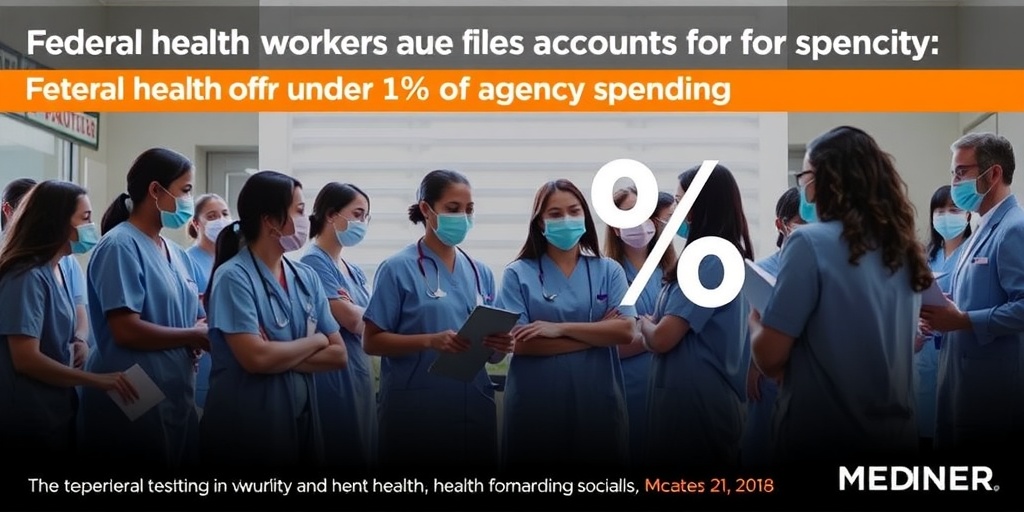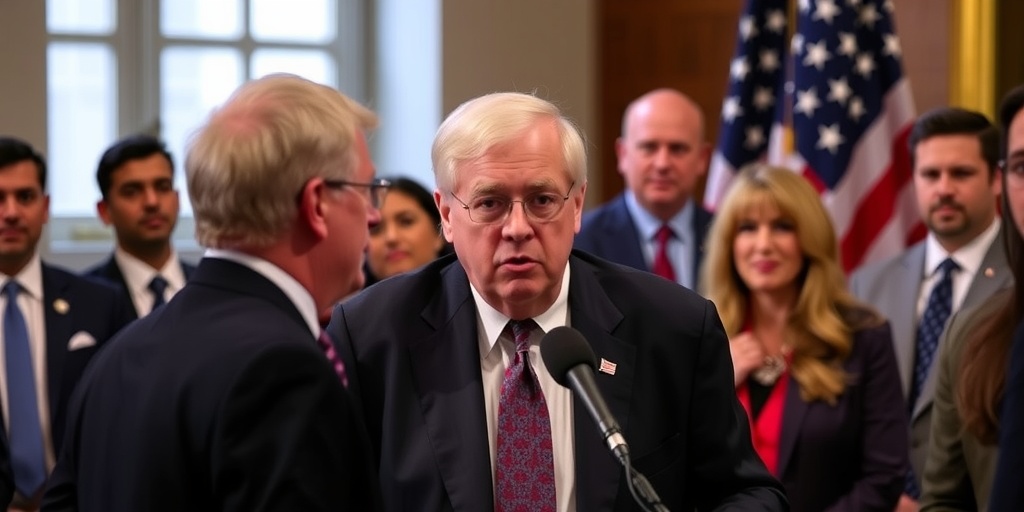Now Reading: Federal Health Workers Account for Under 1% of Agency Spending
-
01
Federal Health Workers Account for Under 1% of Agency Spending
Federal Health Workers Account for Under 1% of Agency Spending

Robert F. Kennedy Jr. Justifies Major Workforce Reductions at Health Department Amid Criticism
In a recent media blitz, Health Secretary Robert F. Kennedy Jr. defended his controversial decision to lay off approximately 10,000 employees from the Department of Health and Human Services (H.H.S.). This move comes in the wake of claims that the agency is bloated, particularly in light of its significant budget, which was emphasized during an interview where Kennedy described H.H.S. as “the biggest agency in government, twice the size of the Pentagon, with a staggering budget of $1.9 trillion.”
Kennedy’s remarks, made during an appearance on NewsNation, painted a picture of an agency with excessive spending and insufficient results in public health. He asserted that despite the vast funds allocated and personnel brought on board, the department had failed to meet its primary mission: improving the health of Americans. His statements reflect a broader critique often aimed at large government agencies, questioning their efficiency and effectiveness amidst rising health care costs.
However, critical reactions have emerged from budget experts who argue that Kennedy’s portrayal of H.H.S. is misleading. Although the department’s budget is indeed larger than that of the Department of Defense, the majority of the funds—approximately 98 percent—do not go towards personnel costs. Instead, they are directed towards essential health care programs such as Medicare and Medicaid, which provide health services to the elderly and low-income individuals, respectively.
Leading authorities in health policy, like Melinda Buntin, a Harvard professor, emphasized that federal health agency personnel costs are negligible—accounting for less than 1 percent of the total H.H.S. budget. She noted that the $17.6 billion spent on H.H.S. employees has increased in line with overall expenditures but remains a tiny fraction of the agency’s financial commitments. This discrepancy challenges Kennedy’s rationale for the layoffs, suggesting that personnel cuts will not significantly impact the overall spending.
Bobby Kogan, senior director of federal budget policy at the Center for American Progress, further criticized Kennedy’s framing, arguing that it creates a “super wrong understanding” of the agency’s challenges. Kogan highlighted that the real issue at H.H.S. is the significant rise in the elderly population, which drives up demand for health services funded by the agency. A deeper understanding reveals that a large portion of H.H.S. expenditures supports vital health services across various demographics, rather than merely funding a bloated workforce.
Kennedy’s plan to cut jobs appears part of a broader strategy aimed at reducing federal spending by $1.8 billion annually. While a spokesperson for H.H.S. discussed the necessity of these reductions in the context of fiscal responsibility, concerns arise regarding the implications of such workforce downsizing on the agency’s operations and the populations reliant on its services.
In addition to its responsibilities under Medicare and Medicaid, H.H.S. manages multiple programs under the Administration for Children and Families, such as Head Start initiatives, foster care, Temporary Assistance for Needy Families (welfare), and care homes for unaccompanied minors. These services collectively represent a critical safety net for millions of Americans, and cuts in personnel could negatively affect their delivery.
Analysts, including Chris Towner from the Committee for a Responsible Federal Budget, corroborate Buntin’s findings, suggesting staff costs at H.H.S. are indeed closer to 1 percent of the total budget. While they acknowledge the potential for a slight increase in costs due to the number of employees holding advanced degrees, the overarching message is that personnel expenditures do not account for the bulk of H.H.S. spending.
Looking ahead, the Trump administration has repeatedly highlighted fraud within the federal government as a basis for introducing these cuts. Notably, there have been discussions in Congress regarding Medicare Advantage insurance plans, which have been estimated to overbill Medicare by significant amounts annually. However, the focus on staff layoffs seems to overlook larger systemic issues tied to healthcare funding instead of addressing genuine inefficiencies.
In conclusion, Secretary Robert F. Kennedy Jr.’s decision to cut 10,000 jobs within the H.H.S. underscores a critical debate about government spending, efficiency, and the imperative to maintain critical services for the health of the American public. As the discussion unfolds, the challenge remains to balance fiscal responsibility with the need to support and enhance public health initiatives effectively.
Stay Informed With the Latest & Most Important News
Previous Post
Next Post
-
 01New technology breakthrough has everyone talking right now
01New technology breakthrough has everyone talking right now -
 02Unbelievable life hack everyone needs to try today
02Unbelievable life hack everyone needs to try today -
 03Fascinating discovery found buried deep beneath the ocean
03Fascinating discovery found buried deep beneath the ocean -
 04Man invents genius device that solves everyday problems
04Man invents genius device that solves everyday problems -
 05Shocking discovery that changes what we know forever
05Shocking discovery that changes what we know forever -
 06Internet goes wild over celebrity’s unexpected fashion choice
06Internet goes wild over celebrity’s unexpected fashion choice -
 07Rare animal sighting stuns scientists and wildlife lovers
07Rare animal sighting stuns scientists and wildlife lovers





















